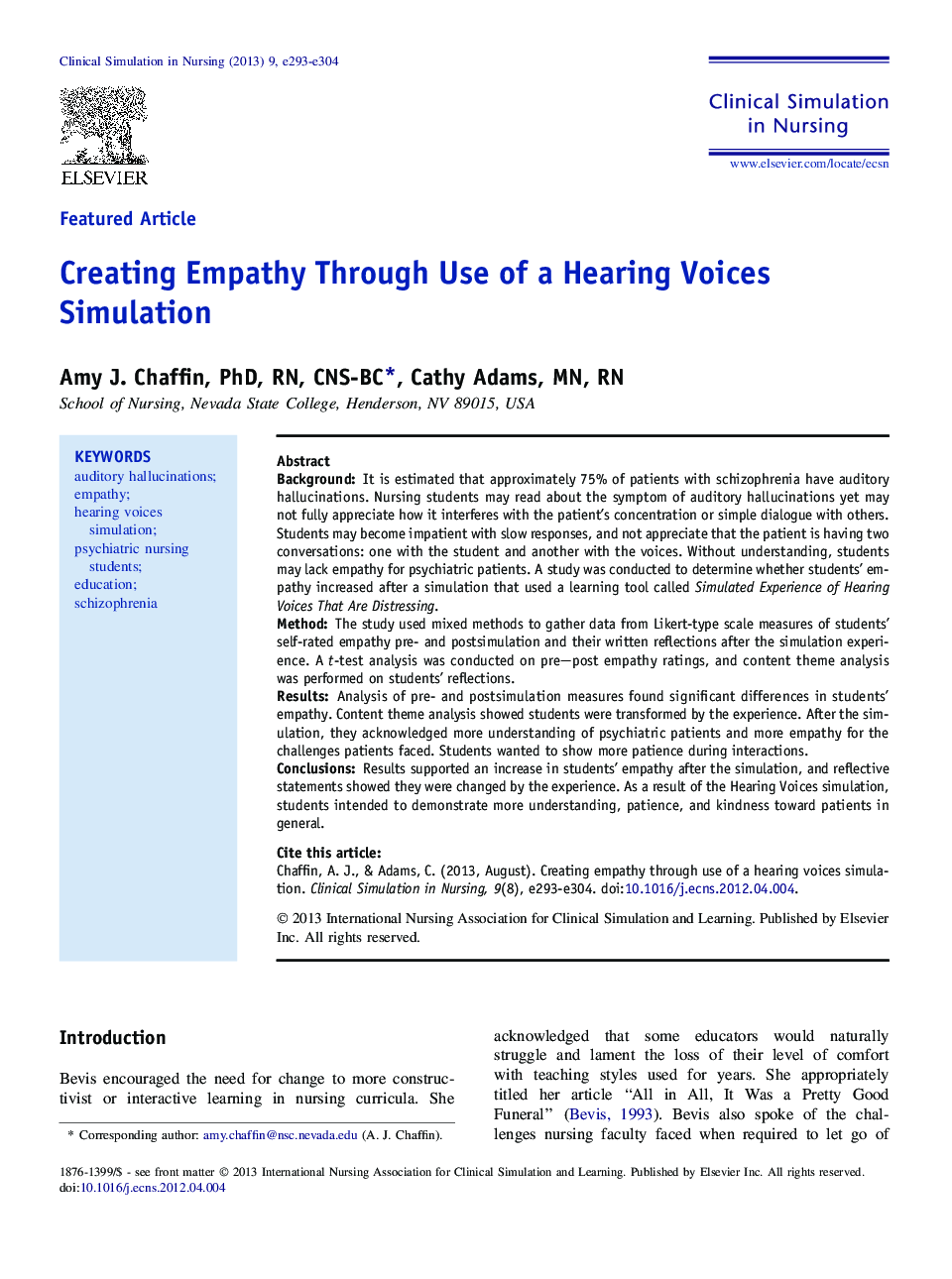| Article ID | Journal | Published Year | Pages | File Type |
|---|---|---|---|---|
| 2645943 | Clinical Simulation in Nursing | 2013 | 12 Pages |
BackgroundIt is estimated that approximately 75% of patients with schizophrenia have auditory hallucinations. Nursing students may read about the symptom of auditory hallucinations yet may not fully appreciate how it interferes with the patient's concentration or simple dialogue with others. Students may become impatient with slow responses, and not appreciate that the patient is having two conversations: one with the student and another with the voices. Without understanding, students may lack empathy for psychiatric patients. A study was conducted to determine whether students' empathy increased after a simulation that used a learning tool called Simulated Experience of Hearing Voices That Are Distressing.MethodThe study used mixed methods to gather data from Likert-type scale measures of students' self-rated empathy pre- and postsimulation and their written reflections after the simulation experience. A t-test analysis was conducted on pre–post empathy ratings, and content theme analysis was performed on students' reflections.ResultsAnalysis of pre- and postsimulation measures found significant differences in students' empathy. Content theme analysis showed students were transformed by the experience. After the simulation, they acknowledged more understanding of psychiatric patients and more empathy for the challenges patients faced. Students wanted to show more patience during interactions.ConclusionsResults supported an increase in students' empathy after the simulation, and reflective statements showed they were changed by the experience. As a result of the Hearing Voices simulation, students intended to demonstrate more understanding, patience, and kindness toward patients in general.
